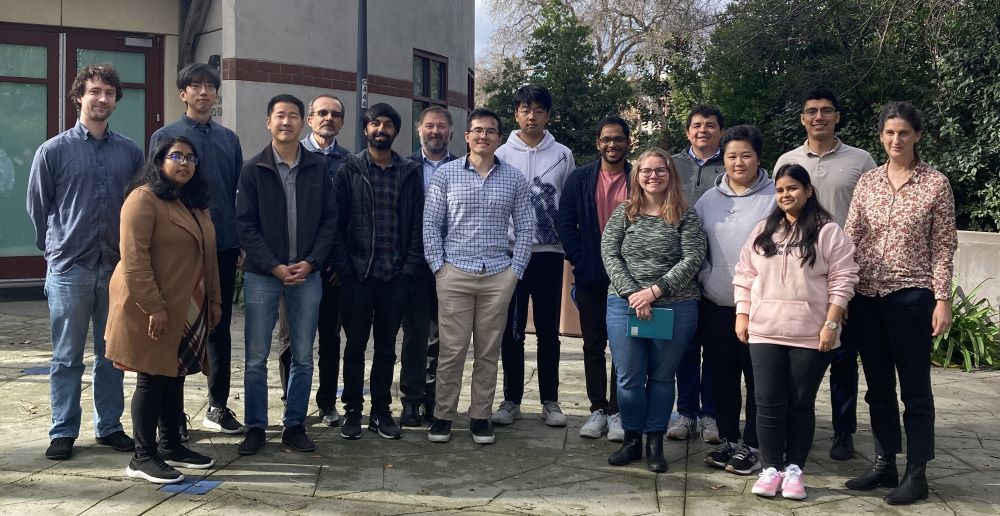
Snapshot taken during our Annual Meeting in Feb. 2024.
Internship Program
As part of the Center’s commitment to education, internships are available each year to both undergraduate and graduate student researchers. For 10 weeks or 6 months, undergraduates and graduate students, respectively, can experience collaborative research away from their home institution at any of the other participating UC sites or at LLBL and LLNL. These research exchanges provide the students with an opportunity to explore a new research area or simply research in general (as may be the case for undergraduates). The internships also allow the students to experience different facilities and to meet more researchers in their field.
Most applications for the exchange fellowships are considered early in each calendar year so that students have a chance to prepare for their summer ahead. However, applications will be considered year-round. Contact Dr. Berben for an application form.
Seven UC RCC Center researchers benefited from the internship program:
Dolores Rodriguez
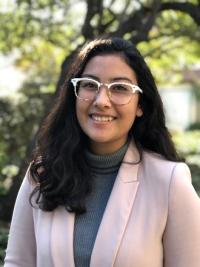
Undergraduate Student - Carlos Morales Guio Research Group / Department of Chemical Engineering, UCLA
At UC Berkeley during the summer of 2022, I was hosted by the groups of Prof. Alex Bell and Dr. Adam Weber, I investigated the optimal parameters of sputtering silver onto PTFE (polytetrafluoroethylene), which were then used as catalysts in the electrochemical reduction of CO2 in a compression-liquid flow cell. I was able to gain an understanding of how these catalysts affected the selectivity of the reaction at different potentials.
Soham Shah
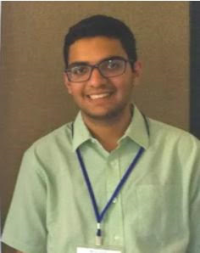
Graduate Student - Leslie Abdul-Aziz Research Group / Department of Chemical Engineering, UCR
At LLNL in the summer of 2022, I gained skills in assembly of electrolyzer cells and the analysis of catalyst performance using electrochemical methods. I contributed to running experiments for testing various configurations of the electrolyzer assemblies and comparing RCC electrolyzers to benchmarked CO2 reduction electrolyzers. Coming from a background of thermal catalysis, this was a leap into a new field, but Dr. Christopher Hahn and Dr. Huiyun Jeong and their team were patient and gracious hosts who trained me thoroughly. The knowledge and expanded network I acquired will always remain with me.
Aneelman Brar
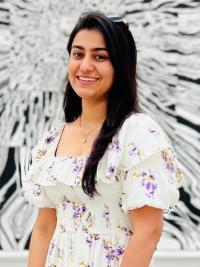
Graduate Student - Michael Findlater Research Group / Department of Chemistry, UCM
I spent the summer of 2022 in the group of Prof. Jenny Yang at UC Irvine, exploring electrocatalysis, which was an entirely new field for me. It was a wonderful learning opportunity during the summer exchange. Working with potentiostats, obtaining cyclic voltammograms, and conducting experiments, such as controlled potential electrolysis, were valuable learning experiences.
Robert Kowalski
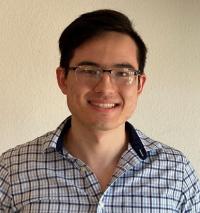
Graduate Student - Philippe Sautet Research Group / Departments of Chemistry & Chemical Engineering, UCLA
While working with Dr. Ambar Kulkarni at UC Davis during the summer of 2022, I worked on creating a machine-learned potential describing water above a Cu slab. I learned about more advanced VASP parameters (VASP = Vienna ab initio Simulation Package) as well as more efficient ways to sample configuration space, both of which I still apply today in my current projects.
Jiawei Guo
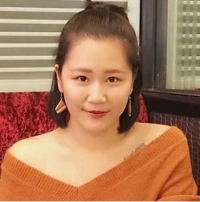
Graduate Student – Ambarish Kulkarni Research Group / Department of Chemical Engineering, UCD
During the winter of 2023, I was hosted by Dr. Christopher Hahn and supervised by Dr. Nitish Govindarajan while interning at LLNL. My primary project was developing machine learning potentials to model the electric double layers with explicit surface charging and solvation through active learning. My second focus was combining GC-DFT with microkinetic modeling to study electrochemical CO2 reduction to CO for molecular catalysts.
Kevin Lee
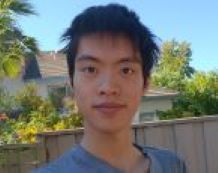
Graduate Student - Louise Berben Research Group / Department of Chemistry, UC Davis
During the summer of 2023, I was kindly hosted by Dr. Chrisopher Hahn and mentored by Dr. Huiyun Jeong at LLNL for an internship. My goal was to study and optimize conditions for the heterogenous electrochemical reduction of CO2 to formate using an iron carbonyl cluster [Fe4N(CO)12]-. I also learned how to work as a team with other professionals in the field.
Ashton Havens
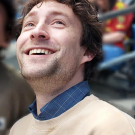
Graduate Student - Michael Findlater Research Group / Department of Chemistry, UCM
During a visit to the Berben lab, I was directed by Surabhi Rai and observed and participated in the set-up of quantitative CO2 loading experiments. These experiments allow us to determine the CO2 loading capacity of a liquid or solution experimentally. Additionally, this technique may probe the reversibility of CO2 binding. During the lab visit, we tested the CO2 binding ability of three imine-based capture agents. With experience in the execution of these studies, I feel confident in conducting analogous experiments, as well as teaching the techniques of CO2 loading to others, in my own lab.
